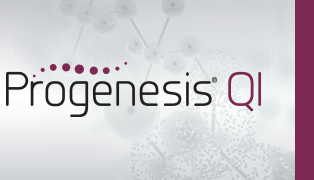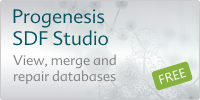Why are none of the compounds I export being found in my pathways analysis?
In short, it may be that the compound database you're using for your identifications uses a different format for its IDs to the pathways tool, or the two may simply cover different species, pathways and so on.
Pathways tools are useful for putting your metabolite alterations into context, identifying statistical trends in the regulation of biochemical pathways associated with the changes you detect.
Of course, it is important that the pathways tool has access to information relevant to the species and pathways in which your alterations have been detected. Many pathways tools do support a wide range of databases. For example, IMPaLA, which has integration support with Progenesis QI, supports thousands of pathways from 11 public databases [1].
However, if your experiment contains entities not represented in these databases, then no results will be returned when you search with your compound identification / fold change data.
Also, pathways analysis can only be successfully carried out if there is an effective process for linking your compound data to the information held in the databases that the pathways tool consults. This requires your accessions of identified compounds to be in the correct format. For example, common identifier formats such as CAS, ChEBI, HMDB, KEGG, and Pubchem are all acceptable with IMPaLA.
The accession you have available is determined by the database searched; since Progenesis QI is compatible with a range of external databases through our MetaScope search, and can also search using numerous other methods, you may obtain various accession formats both across and within experiments. If your format is not compatible with the pathways tool, then it is possible to convert your accessions in some cases, using tools such as those provided by BridgeDB and MSEA.
Finally, it is of course possible that there are no significant alterations in pathways derived from your data (meaning pathway results are not returned). However, if your entries are not being matched to entities in the databases at all, let alone returning significant results (for example, as described in Section 3.2.1 of the IMPaLA tutorial), then one of the previous possibilities is a more likely cause.
References
- Kamburov et al., 2011: "Integrated pathway-level analysis of transcriptomics and metabolomics data with IMPaLA". Bioinformatics 27: 2917-8.






